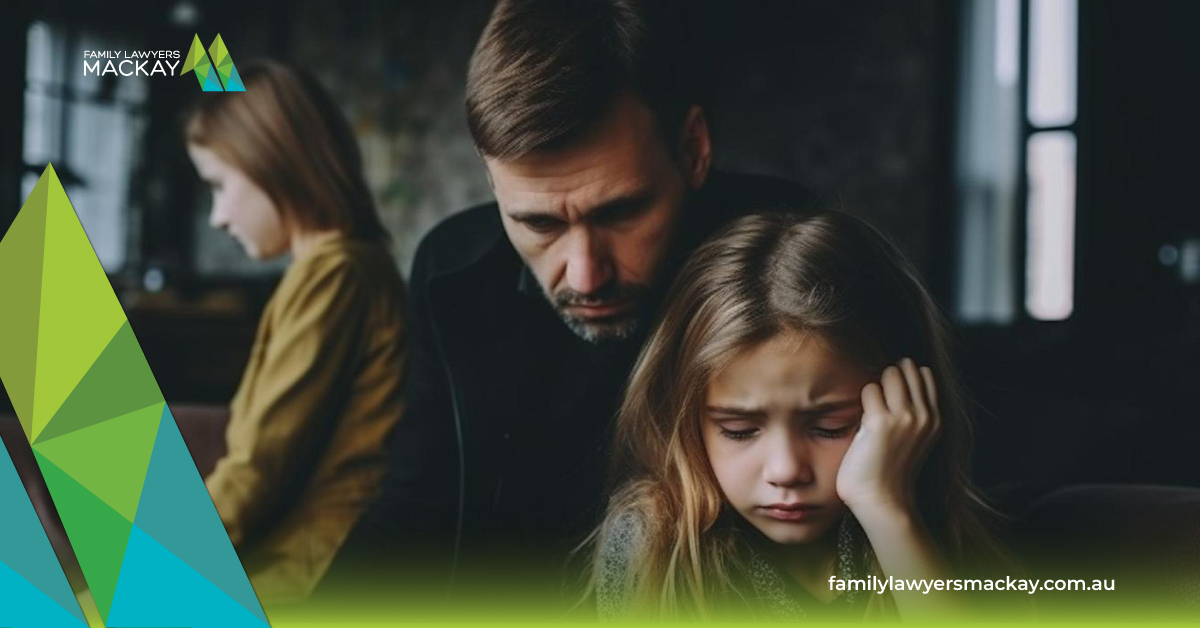Navigating the complex terrain of bankruptcy and divorce simultaneously can be overwhelming. In this comprehensive guide, we’ll unravel the intricacies of this challenging situation. Whether you’re considering bankruptcy before or after a divorce, wondering about the financial implications, or pondering asset division and its impact on your marital home, we’ve got you covered. So, let’s dive into this journey where financial turbulence meets personal transformation.
Timing and Sequence
Should I file for bankruptcy before or after the divorce?
Timing is crucial when facing both bankruptcy and divorce. Before making a decision, consult with legal experts who understand the Australian legal system. In general, filing for bankruptcy before divorce can have advantages, such as protecting assets from creditors. However, it may complicate spousal support arrangements.
How does the timing of bankruptcy affect the division of assets in a divorce?
The timing of bankruptcy can have a significant impact on the division of assets in a divorce, and it can be a complex legal issue. The specific rules and outcomes can vary depending on your jurisdiction and the details of your case, but here are some general principles to consider:
- Pre-Bankruptcy Divorce: If a divorce is initiated before one or both spouses file for bankruptcy, the divorce court typically has the authority to divide the marital assets and debts. The division will be based on the laws of the state or country where the divorce is taking place. The bankruptcy court will generally not interfere with this process.
- Post-Bankruptcy Divorce: If one or both spouses file for bankruptcy after the divorce proceedings have started, it can complicate matters. The bankruptcy court may impose an automatic stay on the divorce proceedings, which means they are temporarily halted while the bankruptcy case is resolved. This stay can affect the division of assets because it prevents the divorce court from making decisions about property and debt division until the stay is lifted.
- Exemptions: Bankruptcy laws often provide exemptions that protect certain assets from being used to pay off creditors. These exemptions can vary by jurisdiction and may play a role in the division of assets in a divorce if one or both spouses have filed for bankruptcy. The non-exempt property may be subject to division in the divorce.
- Cooperative Approach: In some cases, divorcing couples may choose to work together to address both the divorce and bankruptcy issues simultaneously. This can involve negotiations and agreements on how assets and debts will be divided and how bankruptcy proceedings will be handled. This cooperative approach can help both parties achieve a more favorable outcome.
It’s essential to consult with legal professionals who are experienced in both divorce and bankruptcy law if you find yourself in such a situation. They can provide guidance specific to your circumstances, help you understand your rights, and navigate the complex legal implications of the timing of bankruptcy in the context of divorce.
ALWAYS KNOW YOUR RIGHTS AND KNOW WHERE YOU STAND
By consulting one of our accredited family law mackay specialists.Can both spouses file for bankruptcy jointly during a divorce?
Yes, both spouses can file for bankruptcy jointly during divorce proceedings. This approach can simplify the process and reduce legal costs. However, it requires cooperation between both parties, which may be challenging in a contentious divorce.
Financial Implications
How does bankruptcy affect alimony?
Bankruptcy can indeed have an impact on alimony, or spousal maintenance, arrangements. Let’s look at it through a different lens:
Imagine the financial commitments between former spouses as pieces of a pie. When one person declares bankruptcy, it’s like a new factor that affects the size of the pie slices.
- Existing Obligations: Bankruptcy doesn’t automatically make alimony disappear. It’s more like a hurdle in the path to fulfilling that obligation.
- Priority of Payments: Think of alimony as having a special place in line. When it’s time to divide the pie (the bankrupt person’s assets), alimony gets served first, before other debts get a share.
- Claim Against the Bankrupt Estate: The recipient of alimony can request their slice of the pie from the bankruptcy proceedings. It’s like they have a reserved seat at the table.
- Variation: If bankruptcy dramatically changes the financial situation of either party, they can go back to the court to adjust the alimony arrangement. It’s a way to ensure the slices of the pie are fair, given the new circumstances.
So, even in the midst of bankruptcy, alimony remains an important consideration, with its own reserved spot in the financial pie.
What happens to joint debts during a divorce or bankruptcy?
 In Australia, the treatment of joint debts during a divorce or bankruptcy can be complex and depends on several factors, including the nature of the debt, the financial circumstances of the parties involved, and the legal process followed. Let’s explore both scenarios:
In Australia, the treatment of joint debts during a divorce or bankruptcy can be complex and depends on several factors, including the nature of the debt, the financial circumstances of the parties involved, and the legal process followed. Let’s explore both scenarios:
- Divorce and Joint Debts:
- Property Settlement: When a couple divorces, they typically go through a property settlement process to divide their assets and liabilities, including joint debts. This process aims to achieve a fair and equitable distribution of assets and debts.
- Joint Debts: Joint debts are generally considered shared liabilities. During the property settlement, the court may order one party or both parties to take responsibility for specific joint debts. This could involve one party assuming the entire debt or a division of the debt based on each party’s financial capacity and contributions to the marriage.
- Bankruptcy and Joint Debts:
- Personal Bankruptcy: If one spouse is facing personal bankruptcy, the treatment of joint debts depends on whether the other spouse is also liable for those debts. If both spouses are jointly liable for a debt and one declares bankruptcy, the creditor can still pursue the non-bankrupt spouse for the full amount of the debt.
- Joint Bankruptcy: In some cases, both spouses may choose to file for joint bankruptcy. This can provide certain advantages, such as jointly addressing shared debts and having a more coordinated approach to resolving financial issues.
It’s important to note that bankruptcy laws can be complex, and the specific outcome may vary based on individual circumstances and the type of debt involved. Consulting with a qualified family lawyer or bankruptcy attorney in Australia is highly recommended to understand your rights and obligations regarding joint debts during a divorce or bankruptcy.
Additionally, keep in mind that the laws and regulations related to divorce and bankruptcy can change over time, so it’s important to consult with a legal professional who is up-to-date with the current laws and can provide guidance tailored to your situation.
Assets and Property Division
How are marital assets treated in bankruptcy during a divorce?
Marital assets are evaluated differently during bankruptcy and divorce. Bankruptcy proceedings aim to satisfy creditors, potentially liquidating shared assets. Divorce, on the other hand, seeks an equitable distribution of marital property. Balancing these interests can be intricate.
What happens to the marital home if one spouse files for bankruptcy?
The marital home can be a contentious issue when one spouse files for bankruptcy. It may be sold to satisfy creditors or retained by the non-bankrupt spouse, depending on various factors. Seek legal counsel to understand your options.
After Effects and Future Planning
How will bankruptcy and divorce affect my credit score?
Both bankruptcy and divorce can negatively impact your credit score. However, the extent and duration of the damage vary. Bankruptcy can remain on your credit report for several years, affecting your ability to secure loans and credit. Divorce can also lead to financial strain, impacting your creditworthiness.
ALWAYS KNOW YOUR RIGHTS AND KNOW WHERE YOU STAND
By consulting one of our accredited family law mackay specialists.How can I rebuild my finances after bankruptcy and divorce?
Rebuilding your finances after bankruptcy and divorce requires a strategic approach. Start by creating a realistic budget, paying bills on time, and avoiding excessive debt. Seek professional financial advice to develop a plan tailored to your specific situation.
Navigating Bankruptcy and Divorce Simultaneously?
Navigating bankruptcy and divorce simultaneously is challenging, but with the right guidance and legal support, you can emerge from this trying period with your financial future intact. Remember, each case is unique, so consult with experts who understand Australian law to make informed decisions that prioritize your interests.
Frequently Asked Questions
Q. Can I file for bankruptcy and divorce simultaneously?
A: Yes, you can file for both bankruptcy and divorce simultaneously, but it’s essential to understand the intricacies and potential consequences of doing so.
Q. Will bankruptcy affect child support payments?
A: Bankruptcy does not discharge child support obligations. These payments must continue as per court orders.
Q. What happens to jointly owned property during bankruptcy and divorce?
A: The jointly owned property is subject to division in both divorce and bankruptcy. The process can be complex, and legal guidance is often necessary.
Q. Can a bankruptcy discharge affect my divorce settlement?
A: A bankruptcy discharge may impact a divorce settlement, particularly if it involves the division of assets and liabilities.
Q. Are there alternatives to bankruptcy during divorce?
A: Yes, alternatives to bankruptcy exist, such as debt consolidation or negotiation with creditors. Consult a financial advisor to explore options.
Q. How long does bankruptcy stay on my credit record?
A: Bankruptcy typically remains on your credit record for up to 5 years. However, its impact on your creditworthiness may persist longer.














